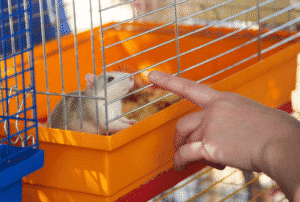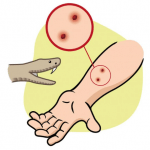
Rats carry diseases that could cause severe infections and, if not treated correctly, can even lead to death. Rats cause infections through their urine, feces, and saliva. And although we feel safer than before with the technology we have, rat diseases are still a significant cause of concern.
In the past, rat diseases usually spread because of indirect means like eating food contaminated with rat urine, feces, or saliva. However, as the growing number of people treating them as pets rather than pests, rat bites have tripled in numbers. Although rat bite has about twelve percent mortality rate, it is not that dangerous if treated correctly and immediately.
Quick Overview
- Administering First Aid
- Do not suck the wound
- Seek medical attention
- Have a tetanus toxoid vaccine
- Record any changes you are feeling
Why do rat bites?
Before we treat rat bites, we need to know when and what triggers them to bite. Rat-bite because they feel threatened or cornered. They are tiny creatures that only have their teeth as an arsenal at their disposal, and they will use it in self-defense. For rats that we consider pets, they can accidentally bite you if you try to feed them directly with your fingers. There are also cases of rats bite, even if they are unprovoked, but that is just minimal, and usually, it has something to do with hygiene issues.
Rat-bite fever and its symptoms
Rat-bite has bacteria in it that causes a disease called rat-bite fever. The symptoms included in rat-bite fever depend on the infection of the bite. Usual symptoms include fever, headache, and sometimes chills. The contamination is more profound in some cases. All three symptoms also include muscle pain, joint pain, pus on the bite wound, vomiting, and skin rashes.
Often, the symptoms of rat-bite fever will not appear until three to 10 days after the bite. However, it is best to treat the wound before the infection made its appearance. Treating rate bites needs to be immediate to prevent serious complications that could be fatal.
Administering First Aid
Rat bites are painful not just because they have strong teeth but also because of the bacteria their teeth have. If rats bite you, it is necessary to administer first aid to the wound. Here is the list of things you can do immediately after a rat bit you.
Wash the wound with warm water and antibacterial soap.
Pat the wound area with a clean cloth or tissue until the bleeding stops. Bleeding is normal after a rat bite and even helped in removing some of the bacteria.
If you have antibacterial ointment, apply it to the bite wound and dress it with a bandage. Applying antibacterial ointment will further prevent infection. In addition, dressing the wound will ensure it is clean and away from another source that could infect it.
If possible, try capturing the rat that bit you. For example, you might need it to identify if the rat carries the bacteria.
Do not suck the wound.
Humans tend to suck the wound, especially if the cut is in the hands. Do not even attempt to suck the open wound to relieve the pain. The bacteria that cause rat-bite fever is in the rat saliva. If you suck it, you are letting the bacteria into your system orally and may result in a rat-bite fever called Haverhill fever.
Haverhill fever is a type of rat-bite fever named after an epidemic in Haverhill, Massachusetts. The epidemic started when people consumed milk from a particular dairy. It was not technically a rat bite but has been termed as such since the same bacteria from rat bites caused it.
Seek medical attention
Rat-bite is a severe incident that needs immediate medical attention. Go to a hospital after you have administered first aid to get professional help. Remember that first aids are only applied to stop further problems, but the issue is still there. Doctors and medical personnel can run tests to make sure the bite is clean and away from infection. Inform your doctor of the first aid you have already applied to the wound as well.
Have a tetanus toxoid vaccine
Get a tetanus toxoid vaccine if rats or any other animals have bitten you. Tetanus is a severe infection that could also be life-threatening if not treated. Tetanus usually is present during animal bites and can be countered by getting a tetanus toxoid vaccine. Tetanus toxoid has a five-year effectivity period for adults, but ask your doctor about it if the victim is a child.
Record any changes you are feeling
As the infection and symptoms can vary, you need to observe what you are feeling for the next two weeks. Check the bite area if it is swollen, warmer to the touch, or if there is pus coming off of it. These are common signs that the bite is infected and needs medical attention.
Aside from the wound area, it would help if you also recorded how you feel. If you are experiencing fever, chills, and headaches, ask your doctor to prescribe antibiotics. The treatment for rat-bite fever is with antibiotics, but doctors need to provide you what drug to use. The dosage and how often to administer them also need to come from medical experts. In the case of people with preexisting conditions, they need more potent antibiotics. Please do not take antibiotics orally without consulting a doctor first.
Whether you have been bitten by a rat because of improper handling (as with the case of pets) or because they feel threatened, you should always be careful in interacting with them. Wear sturdy gloves before you handle them. In doing so, you are protecting yourself from their sharp teeth and protecting yourself from other bacteria they carry in their fur. If you do not have a rat as a pet, make sure you clean your home regularly to avoid rat infestation. As they say, prevention is better than cure.


